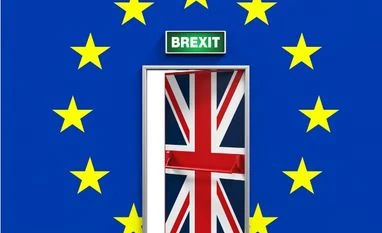Jacob Rees-Mogg, an outspoken pro-Brexit MP, on Thursday submitted a letter of no-confidence in the Conservative Party leadership of Theresa May, putting her position as Prime Minister in further jeopardy.
He said that the draft Brexit withdrawal deal she has finalised has "turned out to be worse than anticipated and fails to meet the promises given to the nation by the Prime Minister".
The senior Tory party backbencher handed over his letter to the Conservative Party's influential 1922 Committee, which has the power to trigger a no-confidence vote in the party leader if it receives similar letters from a total of 48 party MPs.
It remains unclear how many such letters have been submitted or may be on the way to Committee Chair Graham Brady.
"It is in the interests of the party and the country if she (May) were to stand aside," Rees-Mogg, who chairs the pro-Brexit European Research Group, said in his letter.
The letter came in the wake of resignations from ministers in her Cabinet, including Brexit secretary Dominic Raab and Indian-origin minister for Northern Ireland Shailesh Vara, in protest over the withdrawal agreement May has agreed to with the EU.
The British PM made an impassioned defence of the deal in a statement in the House of Commons, declaring that the divorce deal she had struck was in the best interest of the UK. However, the biggest sticking point remains over Britain remaining within the EU Customs Union beyond the transition period.
Also Read
The draft agreement notes that in July 2020, both the EU and the UK will hold a joint review of the position before making one of the three choices: deciding a trade deal which supersedes the need for the backstop, a limited extension to the transition period or trigger the Irish border backstop.
Brexiteers are infuriated by the lack of an independent review clause, which will allow the UK to unilaterally quit the backstop.
"While some people might pretend otherwise, there is no deal which delivers the Brexit the British people voted for which does not involve this insurance policy," May said in her Commons statement.
"The Brexit talks are about acting in the national interest - and that means making what I believe to be the right choices, not the easy ones. I know there are some who have said I should simply rip-up the UK's commitment to a backstop. But this would have been an entirely irresponsible course of action," she said.
Rees-Mogg was among the MPs who confronted May during the Commons debate over the issue, asking her to give him a reason why he should not submit a letter of no-confidence over what he said were "broken promises" over Brexit. Soon after the parliamentary session, he went ahead with the move which may lead to further calls of no-confidence in May's leadership.
Dismissing the idea that he was initiating a "coup" against the Prime Minister, the flambouyant MP for North East Somerset told reporters outside Parliament that he was simply following democratic procedures within the Conservative Party.
"I am not offering my name as leader. This is nothing to do with me," he said, naming a series of pro-Brexit MPs as potential leadership candidates Dominic Raab, who resigned as Brexit Secretary earlier; Esther McVey, who stepped down as work and pensions secretary; international development secretary Penny Mordaunt; former foreign secretary Boris Johnson; and former Brexit secretary David Davis.
Rees-Mogg expressed confidence that the required 48 letters will go into the 1922 Committee, even if it takes some time.
"It is not much good if you lead and no one follows," he said.
May's leadership was also rocked by Nigel Dodds, the Democratic Unionist Party (DUP) leader in Parliament, who told the Prime Minister that she had failed to listen to the Northern Irish party's concern and that her deal would leave the UK a "vassal state" of the EU.
May relies on the DUP for her majority in House and she will need the draft withdrawal agreement to be passed by MPs after the final text is signed off by the remaining 27 EU member states later this month.
Britain voted in favour of Brexit in a referendum in June 2016, which led to the triggering of Article 50 of the Lisbon Treaty to set the clock on the country's formal exit from the 28-member bloc by March 29, 2019.
The controversial withdrawal agreement is the result of months of negotiations on both sides and is crucial for the exit process to be completed on time. But unless both sides reach an amicable divorce arrangement, the prospect of a no-deal Brexit is expected to unleash further chaos.
)